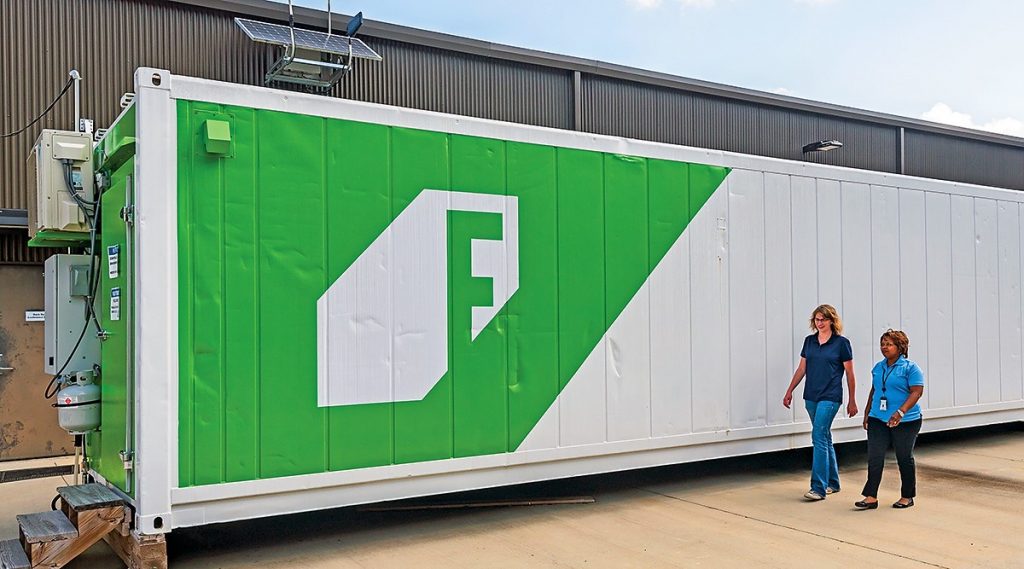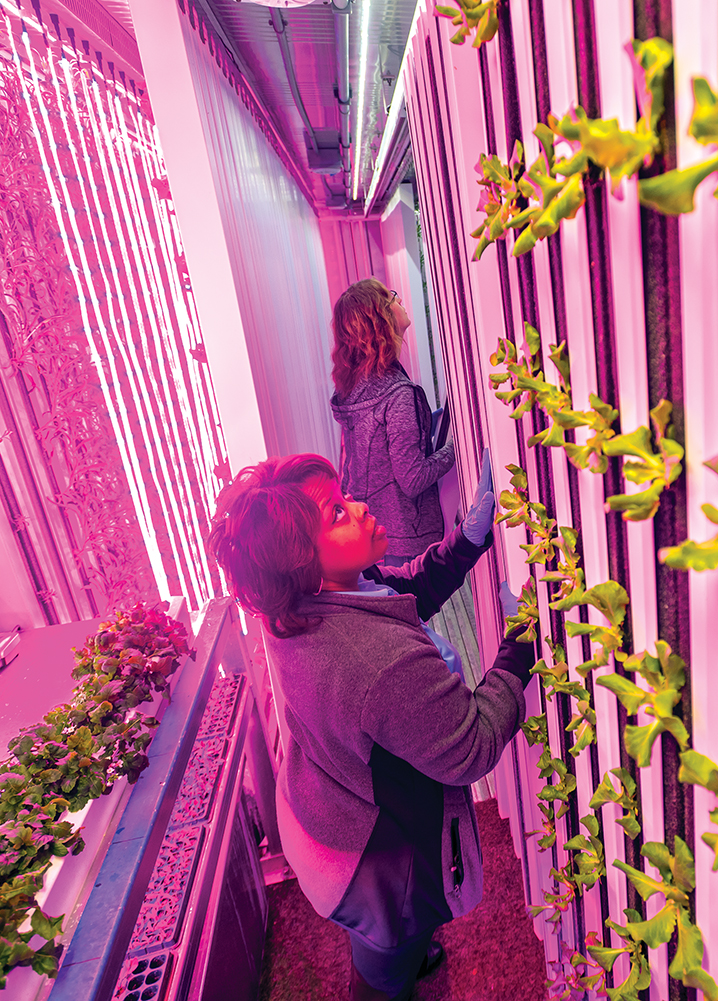Alabama Power has established an innovation project to grow food in a shipping container retrofitted with LED lighting provided by Freight Farm. The aim of the project is to find out if the cost of using electricity to power indoor agriculture is more efficient and feasible in comparison with traditional agriculture.
The company started to cultivate lettuce, herbs, edible flowers and other vegetables in the beginning of 2017 after it installed a 40-foot hydroponic container. The container offered by Freight Farm is a fully assembled, hydroponic farming system with a seed germination table and 256 vertical towers which can hold up to 17 small heads of lettuce each.

(Image: Joseph De Sciose/Powergrams)
“Indoor agriculture can be a great addition to the already thriving agriculture industry in our state,” said Cheryl McFarland, commercial and industrial marketing support manager at Alabama Power. The company considers indoor agriculture a game-changer for farmers, stores, restaurants, consumers and the power company. In the state of Alabama, 70 percent of residents buy organic products and US$ 67 million is spent on lettuce annually.

(Image: Joseph De Sciose/Powergrams)
Advantages of indoor farming with LED lighting in controlled environments including the absence of pesticides and energy sufficiency have been highlighted by the company. The next move of Alabama Power on indoor agriculture is to assess produce production and water and electricity usage, then compare findings with similar projects within Southern Company.
“Interest in indoor agriculture or controlled-environment agriculture is growing either in completely enclosed settings, such as our container, augmented greenhouses or empty buildings, like a vacant mall or Walmart,” McFarland said. “It’s a great way to provide access to fresh foods and jobs in rural communities and urban settings, particularly in areas of food deserts.”













